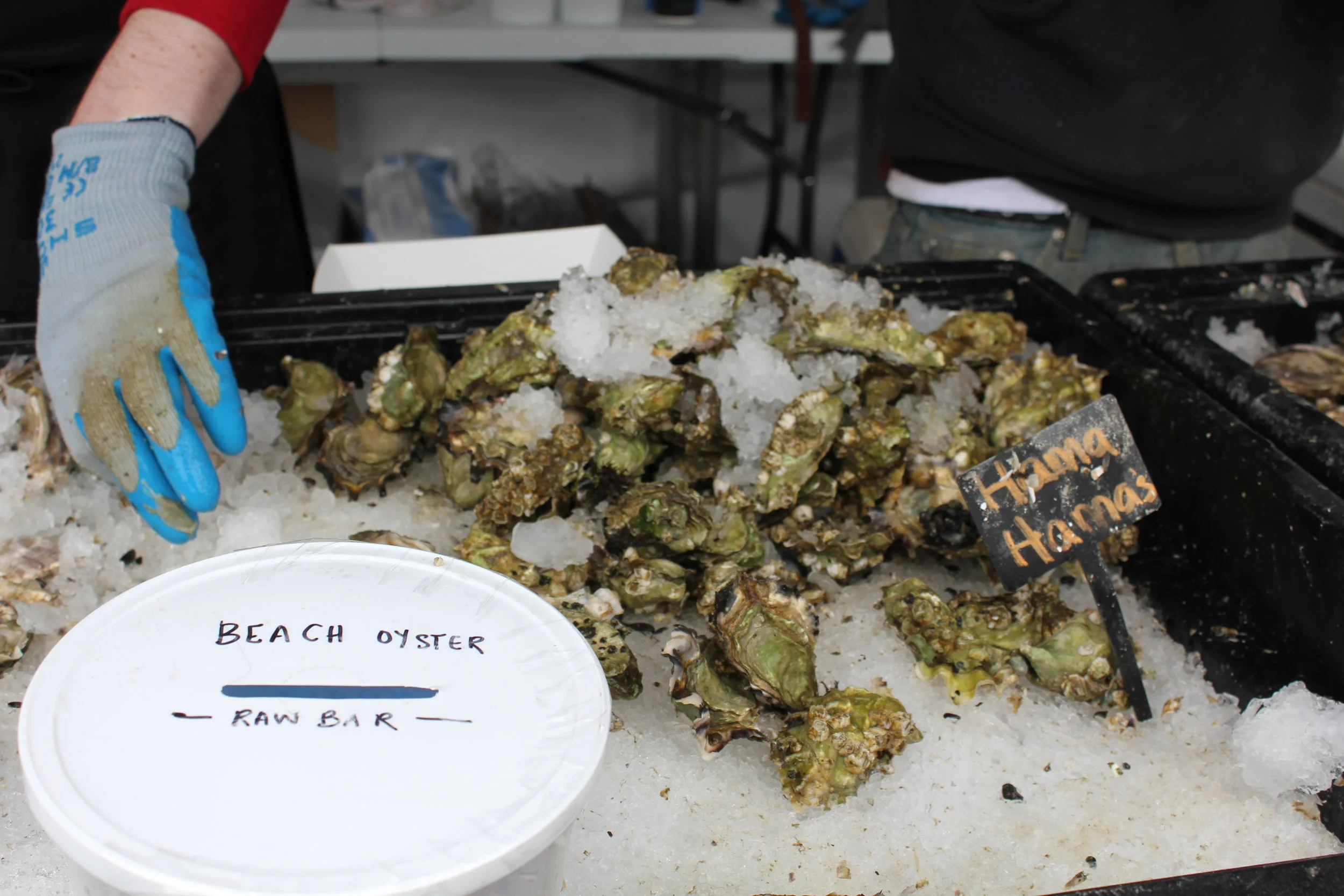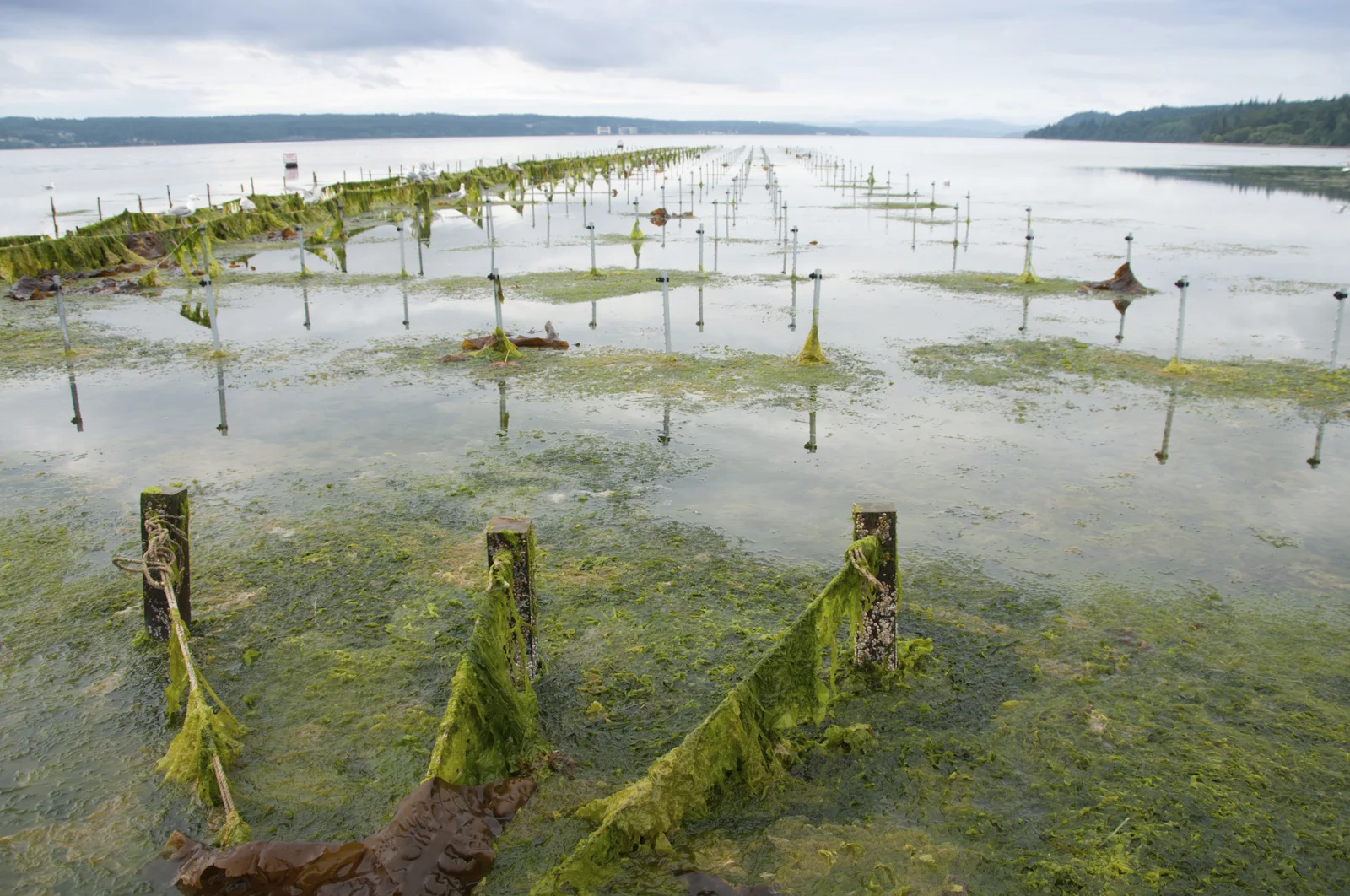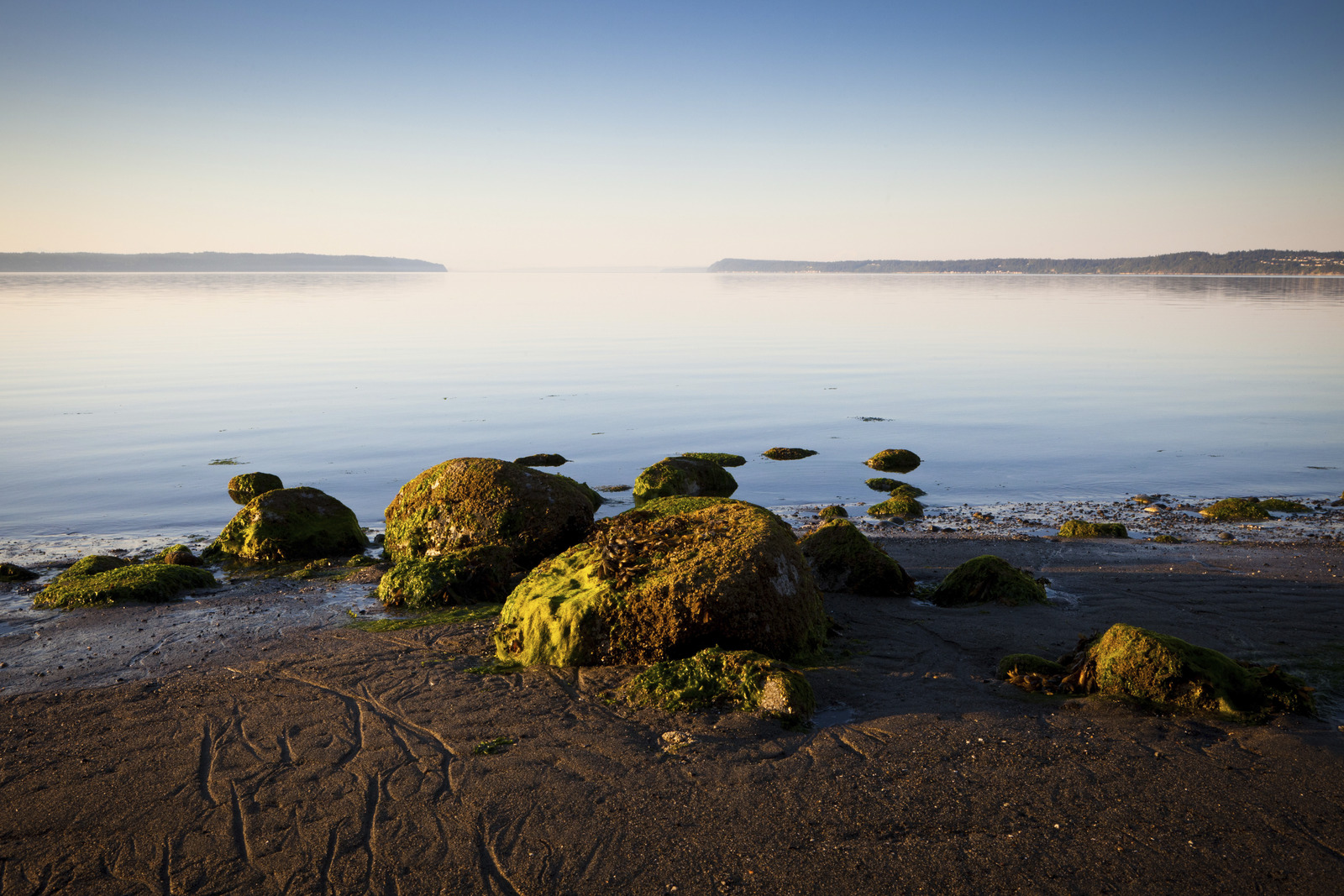We are pleased to announce the formation of the Shellfish Growers Climate Coalition (SGCC), a partnership between shellfish growers on both the East Coast and the West Coast in collaboration with The Nature Conservancy. The coalition is dedicated to engaging with food-sector businesses, consumers and policy makers to chart a course toward achieving climate action and securing a low-carbon future.
Why now?
The founding farmers of the SGCC recognize that climate change and carbon pollution pose a range of threats to their businesses — and to food production more generally. Human impact on the Earth’s climate system is well documented, and it’s happening right now.
How is carbon pollution costing us? Over a quarter of carbon-dioxide emissions are absorbed by the oceans, changing the very chemical composition of the water. A decade ago, the Pacific Northwest shellfish industry experienced a crisis as production of oyster larvae failed in two of the major hatcheries and in the wild. Ocean chemistry altered by dissolved carbon dioxide (ocean acidification) was identified as the culprit. At the same time, at least one hatchery in the Northeast was also severely impacted due to ocean acidification. In these hatcheries today, satisfactory larval production depends on monitoring water chemistry and buffering the incoming seawater to ensure that the proper conditions exist for shellfish larvae to grow their shells. And some growers have located or increased hatchery capacity in less impacted locations to avoid the effects of ocean acidification.
Increasing global temperatures also affect the industry. Over the last decade, ensuring shellfish safety by controlling Vibrio bacteria has become more important and more expensive, and there is strong evidence linking increases in Vibrio abundance to increasing temperatures. Scientists increasingly are able to quantitatively attribute increased storm intensity to global warming caused by climate change. Storm damage from heightened winds and flooding and storm tides exacerbated by rising sea levels significantly impact the industry. Increased runoff from stormwater can mean lower-pH water, and harvest closures to ensure shellfish safety can prove costly. Fluctuation in salinity levels can result in excessive shellfish mortality, and flooding and storm damage can disrupt the transportation and sale of products.
All of these impacts on shellfish farms add up to the need to take action to address climate change.
Announcing the Shellfish Growers Climate Coalition
Members of the SGCC agree that:
Human impact on the Earth’s climate system is well documented, scientifically understood and profound.
Taking action to address climate change is imperative to secure the viability of our businesses, our communities and the natural resources they depend upon.
- Improving people’s understanding of climate change and its impact on our businesses represent an important way to promote and enact climate policies that guide America to a low carbon future.
The SGCC is committed to shining a light on how climate change is already affecting food production in the United States and using the stories of shellfish growers and other businesses endangered by climate change as a way to start a broader conversation about the urgent need for climate action.
Consumers care about where their food comes from and whether the foods they love will continue to be available to them. We want more policy makers to recognize that it is not just jobs and the communities they support at stake as a result of climate change, but whether or not we will be able to feed a growing human population.
What you can do
Join: The SGCC welcomes new business members. Climate change is a problem that affects not only shellfish growers, but wholesalers, restaurants and others in the food industry. Your company’s participation in the coalition is vital to demonstrate to the public and to lawmakers that our industry is deeply concerned not just about its prosperity, but its survival, and that climate change is of concern not just to those who grow and consume shellfish, but everyone.
Learn: A big part of the SGCC’s mission is education — visit our website and learn about climate change, ocean acidification, shellfish farms and most importantly, what you can do to help.
Support: You can support the work of the coalition by clicking here or reaching out to Sally McGee of The Nature Conservancy: smcgee@tnc.org.



























